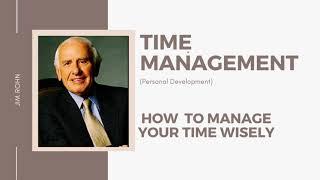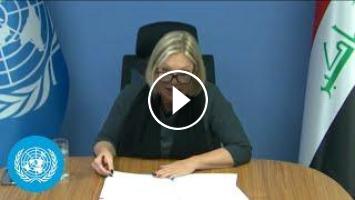The Head of the United Nations Assistance Mission for Iraq (UNAMI) Jeanine Hennis-Plasschaert today (16 May) told the Security Council that “we are, so to speak, witnessing an Iraq on the rise,”and said that despite challenges, “it is high time to judge the country on progress made, and to turn the page on the darker images of Iraq’s past.”
Hennis-Plasschaert said those challenges include “corruption, factionalism, impunity, undue interference in state functions and armed actors operating outside state control” adding that “while the Government is tackling these scourges, they still represent major hurdles to be overcome.”
She said, “feelings of marginalization and exclusion, which are spreading in and among certain components,” if left unaddressed, “risk fanning the flames of intra- and inter-community tension.”
Hennis-Plasschaert noted that this summer “will mark a sombre anniversary: 10 years since Da’esh committed a genocide against the Yazidi people.”
She expressed hope “that the upcoming 10th anniversary will not be wasted but rather used - by all authorities, actors and stakeholders - to unite and step up to the plate with the sole aim of serving the people of Sinjar.”
The Head of UNAMI told the Council that “dealing with both the legacy of the past and the many challenges of the present will take time,” and warned that “nothing is irreversible.”
Yet, she said, “while the country has teetered on the edge, several times, it has found a way to step back from the brink, to continue its journey forward.”
For his part, Iraqi Ambassador Abbas Kadhom Obaid Al-Fatlawi said, “the government of Iraq requests that UNAMI’s work be concluded by December 31 2025. And its work until that time must focus on completing its work and the files of economic reform, service delivery, sustainable development, climate change, and other developmental matters. It must work on completing its liquidation and achieving a responsible and full drawdown by 2025.”
UNAMI was established by Security Council resolution 1500 in 2003 at the request of the Government of Iraq, revised under resolution 1770 in 2007 and has since been extended on an annual basis.
The current mandate of UNAMI encompasses a number of key areas, including the provision of advice, support and assistance to the Government and the people of Iraq on advancing inclusive political dialogue and national and community-level reconciliation; electoral support; as well as facilitating regional dialogue and cooperation; promoting accountability and the protection of human rights and judicial and legal reform; gender mainstreaming; and promoting coordination and facilitating, in coordination with the Government of Iraq, delivery in the humanitarian and development areas.
Furthermore, under Security Council resolution 2107 of 2013, UNAMI is mandated to promote, support and facilitate efforts of the Government of Iraq regarding the repatriation or return of all Kuwaiti and third-country nationals, or their remains, and the return of Kuwaiti property, including the national archives.
Hennis-Plasschaert said those challenges include “corruption, factionalism, impunity, undue interference in state functions and armed actors operating outside state control” adding that “while the Government is tackling these scourges, they still represent major hurdles to be overcome.”
She said, “feelings of marginalization and exclusion, which are spreading in and among certain components,” if left unaddressed, “risk fanning the flames of intra- and inter-community tension.”
Hennis-Plasschaert noted that this summer “will mark a sombre anniversary: 10 years since Da’esh committed a genocide against the Yazidi people.”
She expressed hope “that the upcoming 10th anniversary will not be wasted but rather used - by all authorities, actors and stakeholders - to unite and step up to the plate with the sole aim of serving the people of Sinjar.”
The Head of UNAMI told the Council that “dealing with both the legacy of the past and the many challenges of the present will take time,” and warned that “nothing is irreversible.”
Yet, she said, “while the country has teetered on the edge, several times, it has found a way to step back from the brink, to continue its journey forward.”
For his part, Iraqi Ambassador Abbas Kadhom Obaid Al-Fatlawi said, “the government of Iraq requests that UNAMI’s work be concluded by December 31 2025. And its work until that time must focus on completing its work and the files of economic reform, service delivery, sustainable development, climate change, and other developmental matters. It must work on completing its liquidation and achieving a responsible and full drawdown by 2025.”
UNAMI was established by Security Council resolution 1500 in 2003 at the request of the Government of Iraq, revised under resolution 1770 in 2007 and has since been extended on an annual basis.
The current mandate of UNAMI encompasses a number of key areas, including the provision of advice, support and assistance to the Government and the people of Iraq on advancing inclusive political dialogue and national and community-level reconciliation; electoral support; as well as facilitating regional dialogue and cooperation; promoting accountability and the protection of human rights and judicial and legal reform; gender mainstreaming; and promoting coordination and facilitating, in coordination with the Government of Iraq, delivery in the humanitarian and development areas.
Furthermore, under Security Council resolution 2107 of 2013, UNAMI is mandated to promote, support and facilitate efforts of the Government of Iraq regarding the repatriation or return of all Kuwaiti and third-country nationals, or their remains, and the return of Kuwaiti property, including the national archives.
- Category
- United Nations
- Tags
- UN, United Nations, UNGA
Be the first to comment













